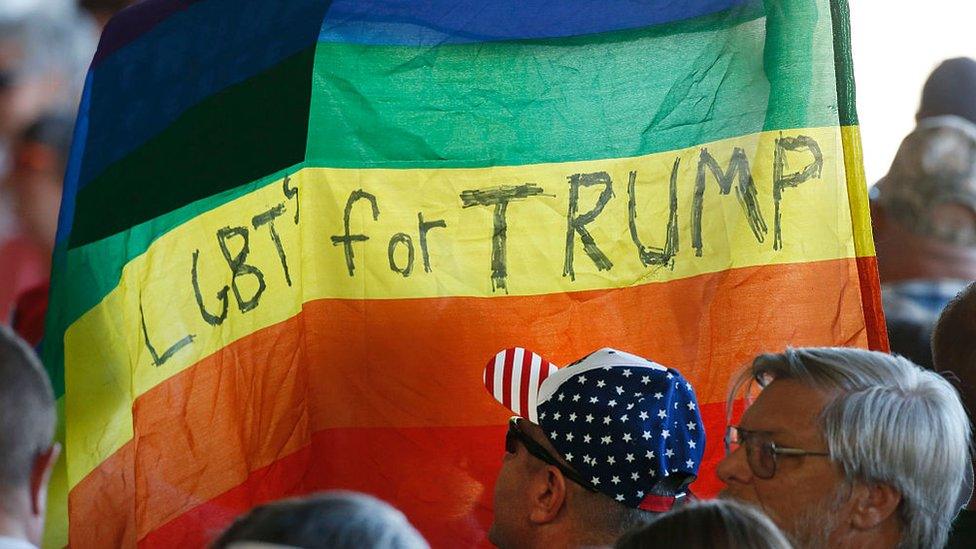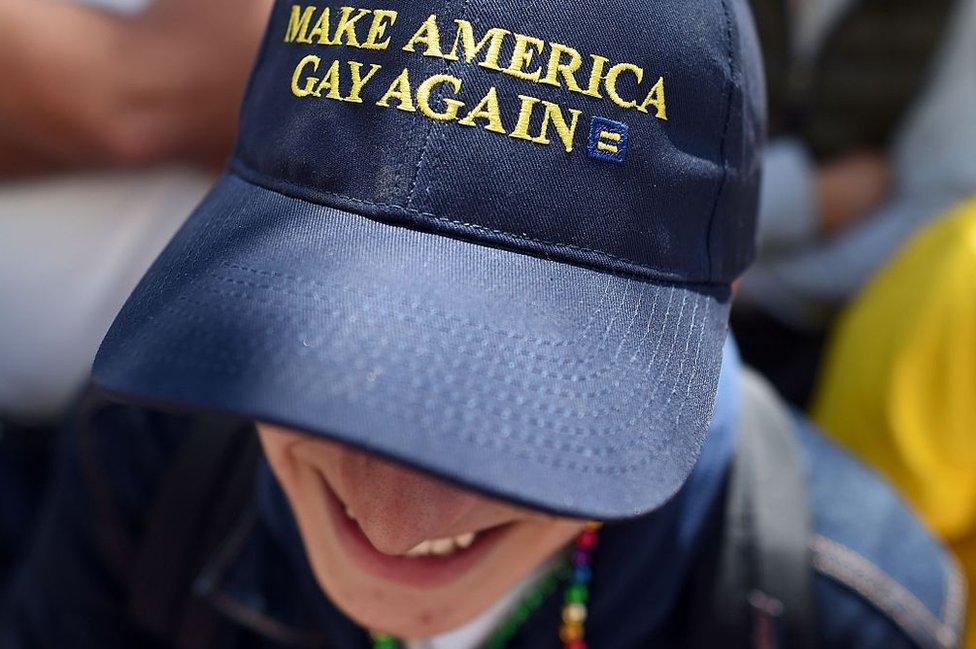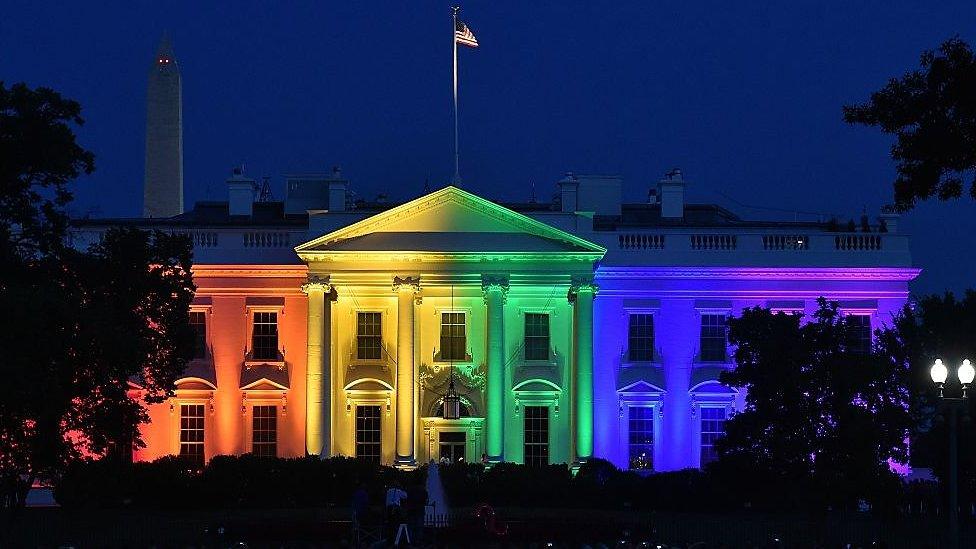LGBT worker protection stays under Trump
- Published

Mr Trump expressed support for the LGBT community during his campaign
Federal protections for the rights of LGBT workers will continue to be enforced under President Donald Trump, the White House has promised.
The policy continues the 2014 executive order signed by his predecessor, barring discrimination on the basis of sexual orientation or gender identity.
The directive comes amid reports that Mr Trump was considering repealing Obama administration-era protections.
But LGBT-rights groups still question Mr Trump's commitment to their cause.
"Claiming ally status for not overturning the progress of your predecessor is a rather low bar," said Chad Griffin, president of the Human Rights Campaign.
"LGBTQ refugees, immigrants, Muslims and women are scared today, and with good reason.
"Donald Trump has done nothing but undermine equality since he set foot in the White House."
Could Donald Trump ban same-sex marriage?
The White House directive continues former President Barack Obama's action which extended federal employment rights to LGBT people.
It banned companies that do work for the federal government from discriminating on the basis of sexual or gender identity.
The order was seen as significant because it expanded hiring protection to about 28 million workers, about a fifth of the US workforce.

A man wearing a Trump-inspired hat watches the San Francisco pride parade
The decision to keep the order in place was Mr Trump's, said White House Press Secretary Sean Spicer.
"President Trump continues to be respectful and supportive of LGBTQ rights, just as he was throughout the election", Mr Spicer said.
"The president is proud to have been the first ever GOP nominee to mention the LGBTQ community in his nomination acceptance speech, pledging then to protect the community from violence and oppression."
Mr Spicer's statement used stronger language to defend the equal rights of gay, lesbian, bisexual and transgender people than any issued by a Republican president, said the New York Times.
But LGBT-rights groups have expressed alarm about Mr Trump's approach to social policies enacted under Democratic President Barack Obama.
Mr Trump opposes gay marriage and his vice-president, Mike Pence, enacted one of the nation's toughest so-called religious freedoms bill as Indiana governor.
Campaigners accused Mr Pence of seeking to legalise discrimination.
- Published23 November 2016
